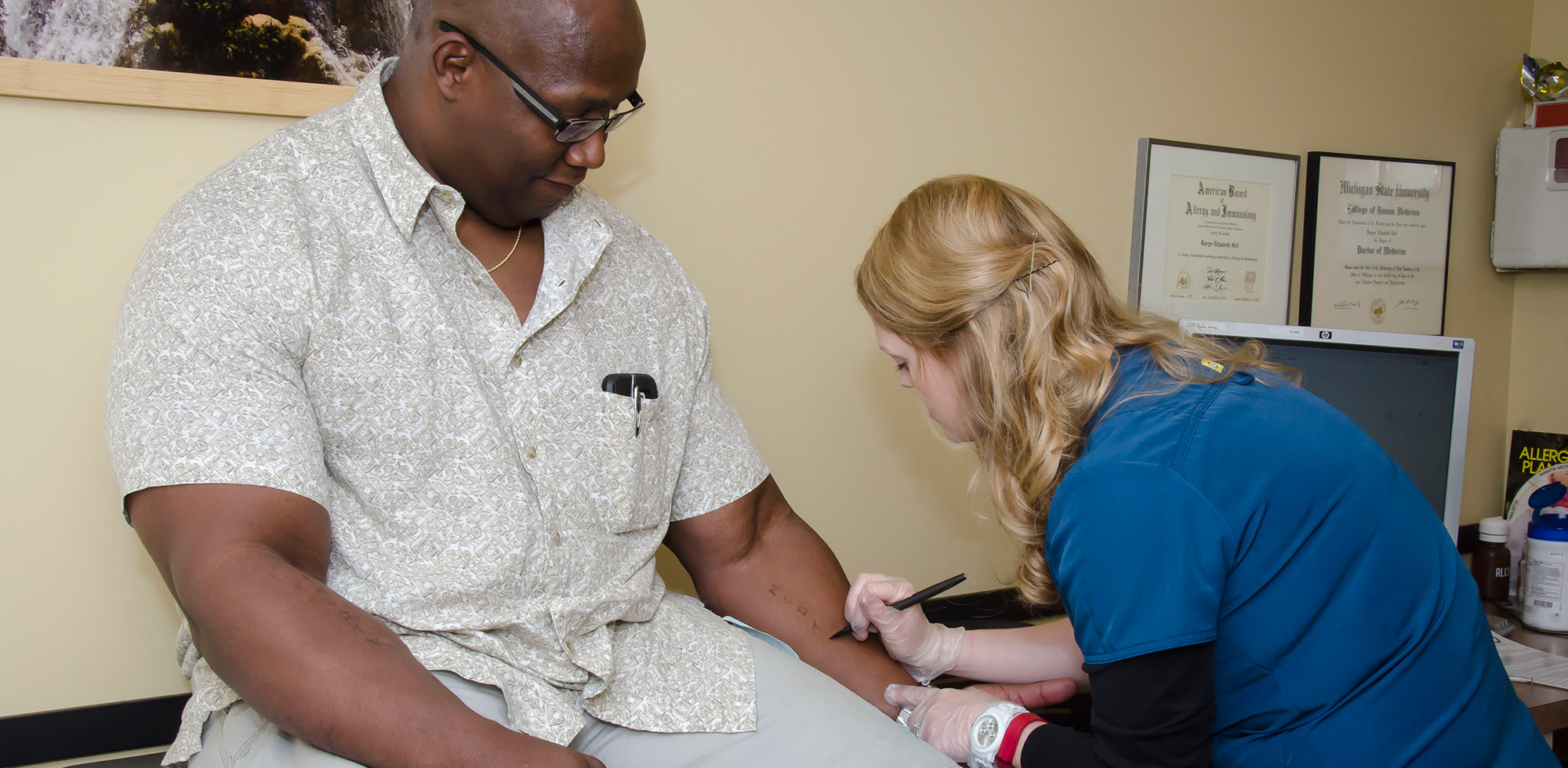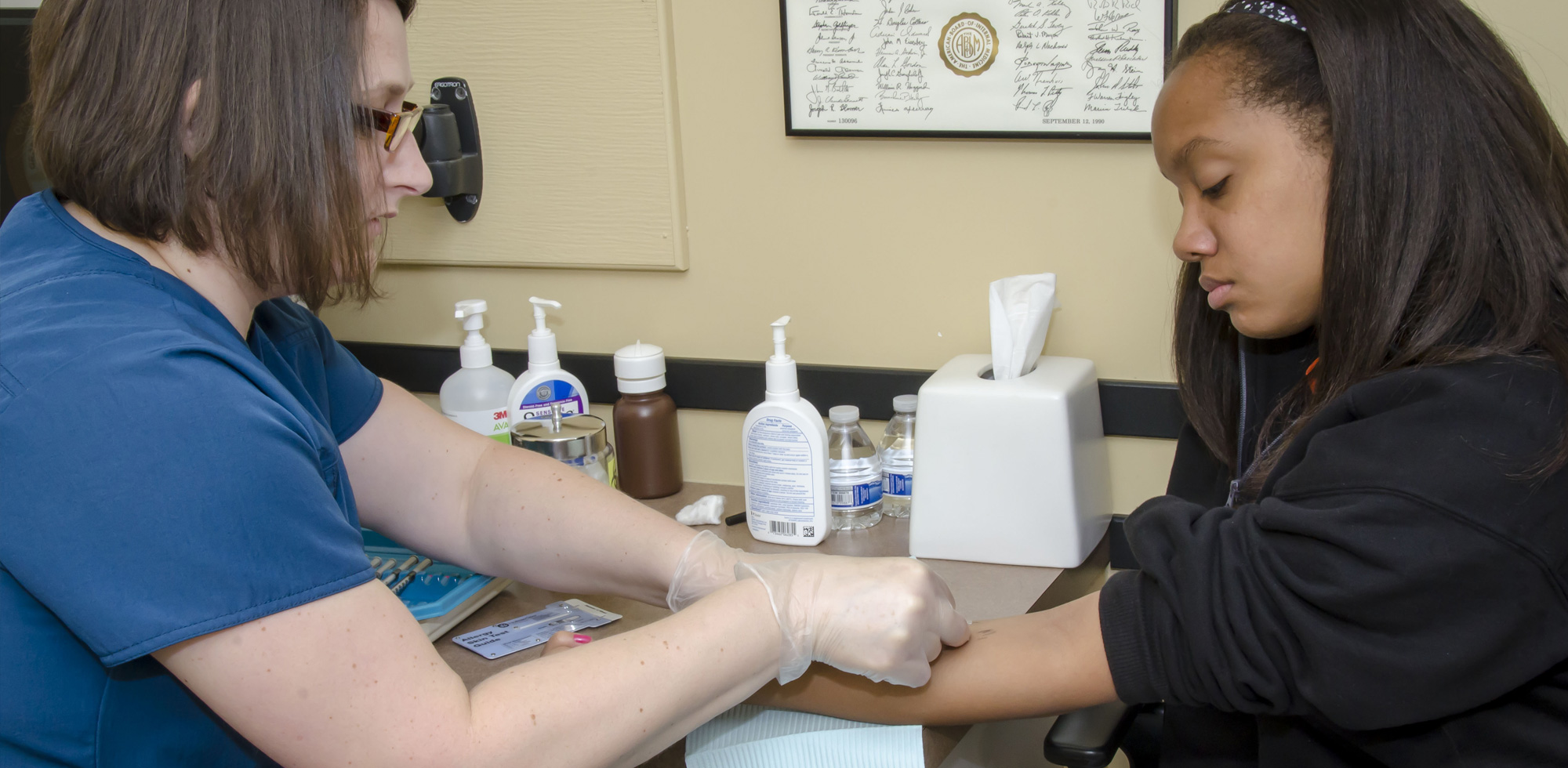
Your initial consultation with Grand Rapids Allergy is a three hour process. Listening to you is the most important step. Both a registered nurse and a medical doctor take an extensive medical history and perform a physical exam followed by specific diagnostic tests as needed. Each allergy patient has a unique combination of allergic triggers and environmental factors that require a unique plan for treatment. Avoidance of allergens may be practical for one patient, but more difficult for another.

Many medications can have a measure of success in easing the symptoms of an allergic reaction, but the underlying cause of what’s triggering the allergy remains untreated.
Drowsiness, dizziness, constipation, upset stomach, blurred vision, and dry mouth are all commonly associated with traditional allergy medications. And being on them long term can lead to even more problems.
Allergies can result in a large number of different symptoms. To treat multiple symptoms requires multiple medications – one for every symptom. This can leave people feeling like a “walking pharmacy”.


Immunotherapy involves a series of injections of allergenic extracts over a period of time, usually 3-5 years. As the dose increases, you should begin to feel better. This frequently results in less medication use or elimination of medicines entirely.
In addition to therapy, avoidance strategies will also be discussed. There are many options depending on your specific allergy; a specific recommendation and plan will be put together for you.
Also known as allergy drops or tablets, this treatment is administered under your tongue. While traditional allergy injections are administered weekly-to-monthly, sublingual immunotherapy may be administered daily at home.
The goal is to decrease reliance on traditional medications over time. But during that process both over-the-counter or prescription medications may be included as part of your overall personalized treatment plan. Medications you have used in the past are thoroughly evaluated and all current medications are reviewed.
